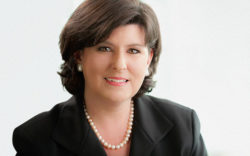Congressman Doug Collins is the kind of politician who would seem to be very conservative. A Washington media outlet, the National Journal, ranked him as the 16th most conservative member of the U.S. House. The Heritage Foundation, a conservative think tank, gave Collins a 79 percent ranking for his voting record, while the average score for a House Republican was 63 percent. The American Conservative Union gave Collins a score of 88 percent, ranking him as more conservative than such stalwarts as Lynn Westmoreland, Rob Woodall and Austin Scott.
Obviously, this guy is not a liberal. But he must have done something to irritate voters in the 9th Congressional District, one of the nation’s most conservative, because they’re coming after him in force. As he prepares to run for another term, Collins has no less than four opponents in his own party primary. The most prominent challenger is Paul Broun, who represented the neighboring 10th Congressional District for more than seven years before running unsuccessfully for the Senate in 2014.
“I am running because our conservative values are under attack and have never been in greater jeopardy,” Broun said. “We need a proven conservative leader who will stand up at all costs for our beliefs.”
Despite all his high media rankings, Collins will have to persuade voters that he’s really more conservative than Broun and the other tea party activists trying to take him down. Good luck with that.
Collins isn’t the only Georgia incumbent who’s facing a challenge, either. There is Rep. Barry Loudermilk (R-Cassville) over in the 11th Congressional District. It would be difficult to find anyone in Congress more conservative than Loudermilk. And yet, Loudermilk also has four people running against him in the Republican primary.
Rep. Tom Graves (R-Ranger), already one of the most conservative congressmen, has opposition in the 14th Congressional District primary. Rep. Tom Price (R-Roswell), who’s chairman of the House Budget Committee, has primary opposition, as does Rep. Rick Allen (R-Augusta) over in the 12th Congressional District.
Sen. Johnny Isakson is also being challenged. Two people have qualified to run against him in the GOP primary, and if Isakson survives that, he will have a Democrat coming at him in the general election, possibly Atlanta businessman Jim Barksdale.
The primary battles have spread to the legislative level as well. House Speaker David Ralston, the most powerful man in the General Assembly, has a GOP primary opponent. The majority leaders in the House and Senate, Rep. Jon Burns (R-Newington) and Sen. Bill Cowsert (R-Athens), are being challenged in their own primaries, along with several influential committee chairmen.
The candidates running against these powerful officeholders are not familiar names in the world of politics. Many of them are businessmen or people who have retired and decided to put their name on the ballot for the May 24 primary.
Why are all these newcomers suddenly so interested in running? One theory is that they were motivated by the example of Donald Trump, the business magnate and reality TV star whose outspoken campaign has made him the favorite to win the Republican presidential nomination.
Trump certainly could have been the inspiration for them, but I’d go back two years and point to the example of Georgia’s own David Perdue. Like Trump, Perdue was a wealthy businessman who had never run for political office before. Like Trump, Perdue said he would be a common-sense outsider who could go to Washington and fix what was broken with the political system. Perdue rode that outsider position to defeat several veteran congressmen for the GOP nomination and then win a Senate seat in one of the biggest political surprises of 2014.
If anyone was the inspiration here, I’d say that Perdue set the example for Trump and all of these political newcomers to follow.
Like what you just read? Support Flagpole by making a donation today. Every dollar you give helps fund our ongoing mission to provide Athens with quality, independent journalism.










